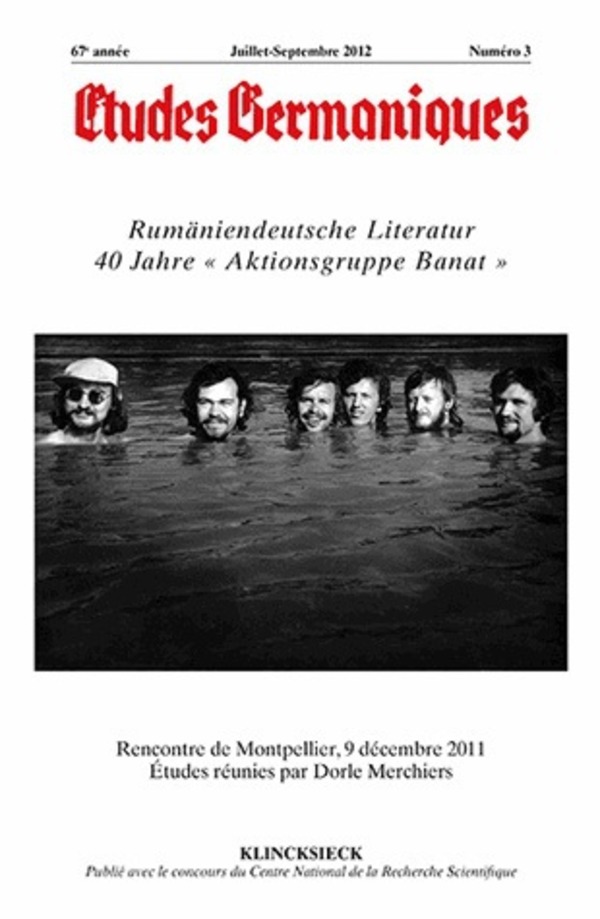Jean-Marie Valentin
Jean-Marie Valentin est titulaire de la Chaire d’Histoire culturelle du monde germanique à l’Institut Universitaire de France. Il dirige la collection Bibliothèque Allemande aux Belles Lettres.
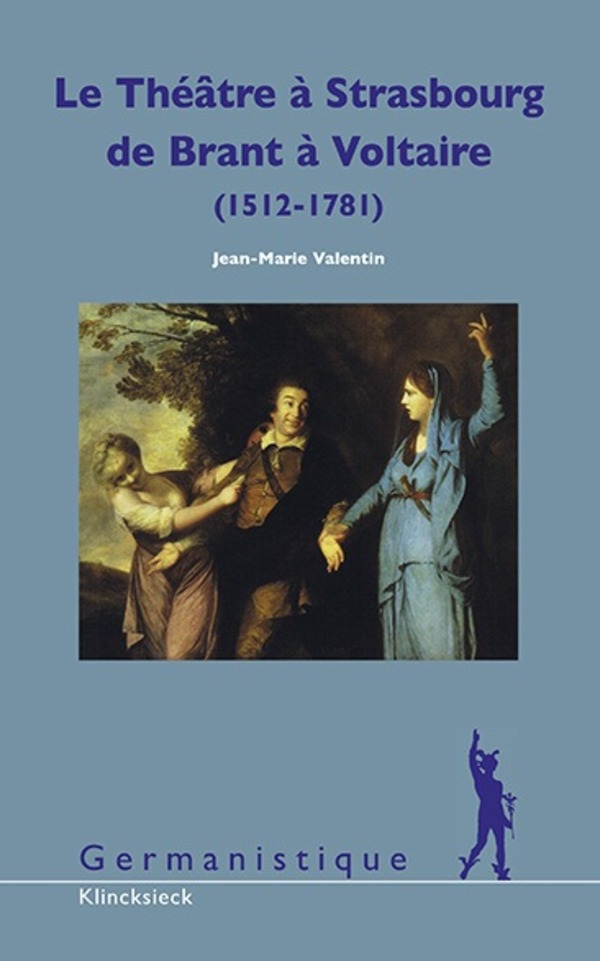
Jean-Marie Valentin
Le Théâtre à Strasbourg de Brant à Voltaire (1512-1781)
Études et Documents. Pour une histoire culturelle de l'Alsace
Une étude sans précédent en histoire théâtrale appuyée sur de nombreuses archives reproduites pour la première fois.
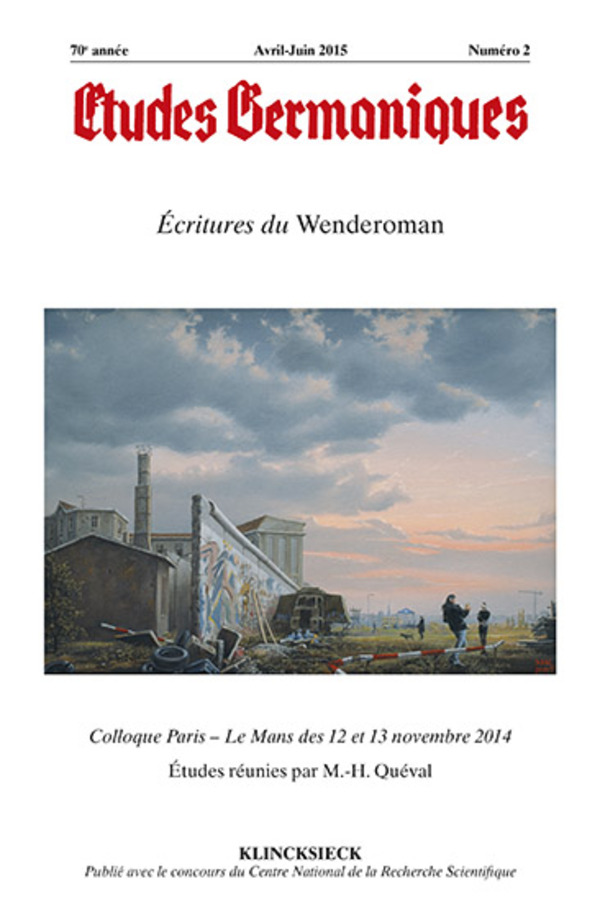
Études germaniques - N°2/2015
Écritures du Wenderoman
Marie-Hélène QUÉVALLe Wenderoman et l'impasse postmoderne The Wenderoman is a genre specifcally rooted in the period preceding, including and immediately following the fall of the Berlin Wall in the late 1980s and early 1990s. It however looks beyond this historical frame to question its own form and legitimacy. Bearing witness...
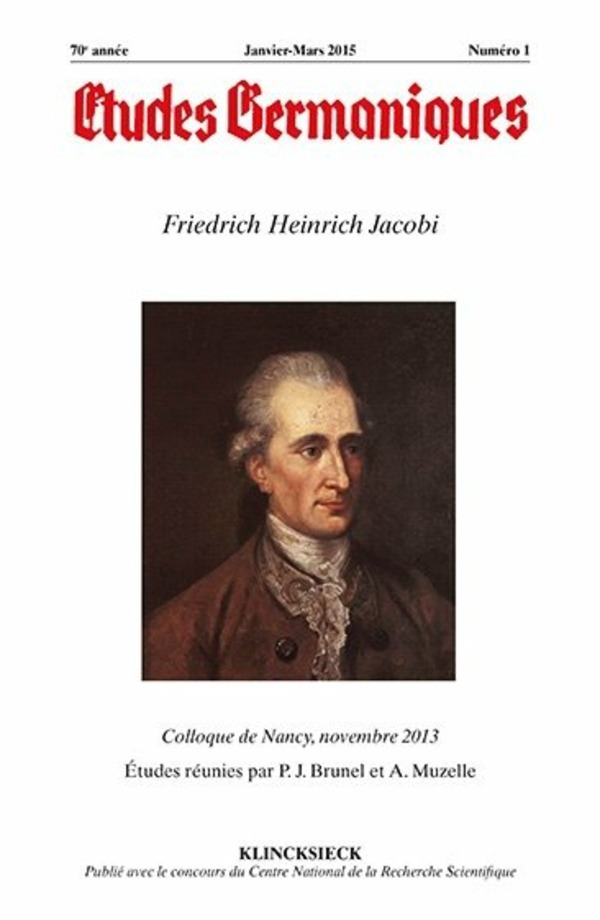
Études germaniques - N°1/2015
Friedrich Heinrich Jacobi
Pierre Jean BRUNEL : Oti et dioti. Les enjeux métaphysiques de l'éthique aristotélicienne dans Woldemar de Friedrich Heinrich Jacobi While Aristotle's authority is being challenged by modern philosophy, Jacobi quotes from his Nicomachean Ethics in Woldemar. Daniel Jenisch's edition of the Aristotle Ethics proves to be a major source for...
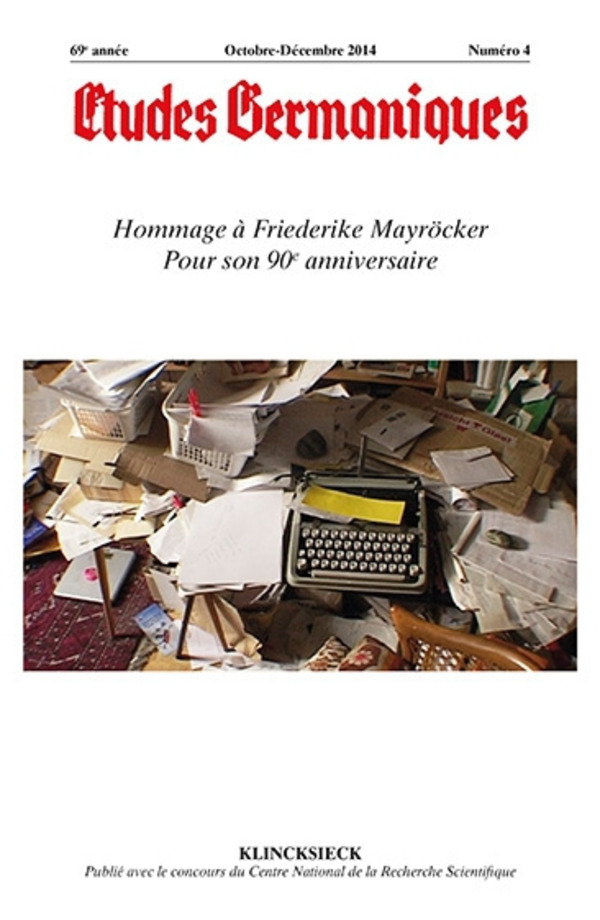
Études germaniques - N°4/2014
Hommage à Friederike Mayröcker Pour son 90e anniversaire
Inge ARTEEL Biographie einer BiographielosenBased on my experiences writing a monographical biography of Friederike Mayröcker I explore some dilemma's and paradoxes of biographical writing, both in the texts of Mayröcker herself and in the writing about her texts. In her prose texts as well as in paratexts Mayröcker cites and...
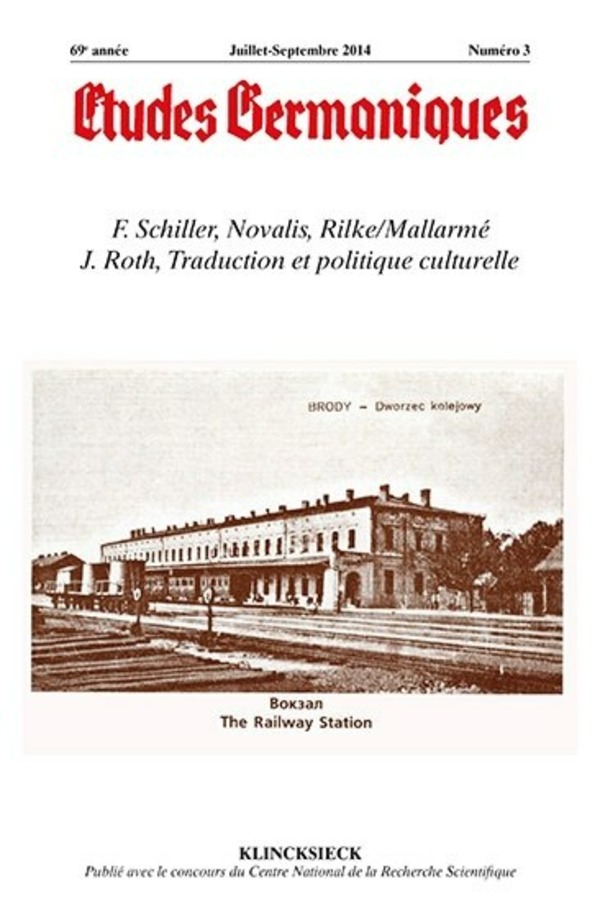
Études germaniques - N°3/2014
F. Schiller, Novalis, Rilke/Mallarmé, J. Roth, Traduction et politique culturelle
Daniel DROIXHE Le théâtre allemand dans les limbes de la reconnaissance La chronique du Journal encyclopédique, du Hanswurst à Klopstock (1756-1762) The study follows the various stages through which the Journal encyclopédique records the claims and reforms having allowed the XVIIIth century German theatre to shake off the « great...
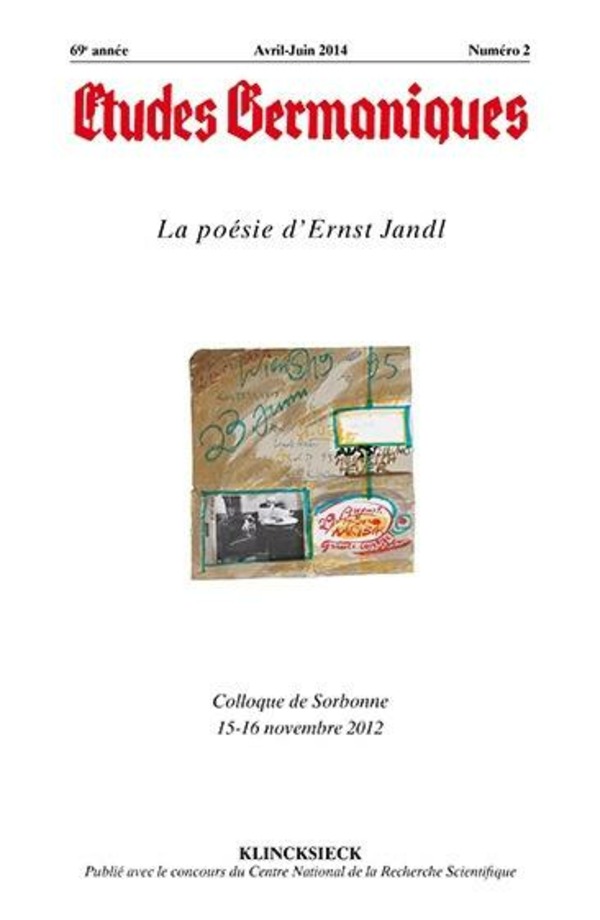
Études germaniques - N°2/2014
La poésie d'Ernst Jandl
RESUMES Laurent CASSAGNAU, Voir le corps de la langue, écouter la langue du corps. Ernst Jandl et la critique du logocentrisme.This article discusses the work of Ernst Jandl from the viewpoint of those twentieth century thinkers who challenge the idea of a transcendent logos, which pervades the Western tradition in...
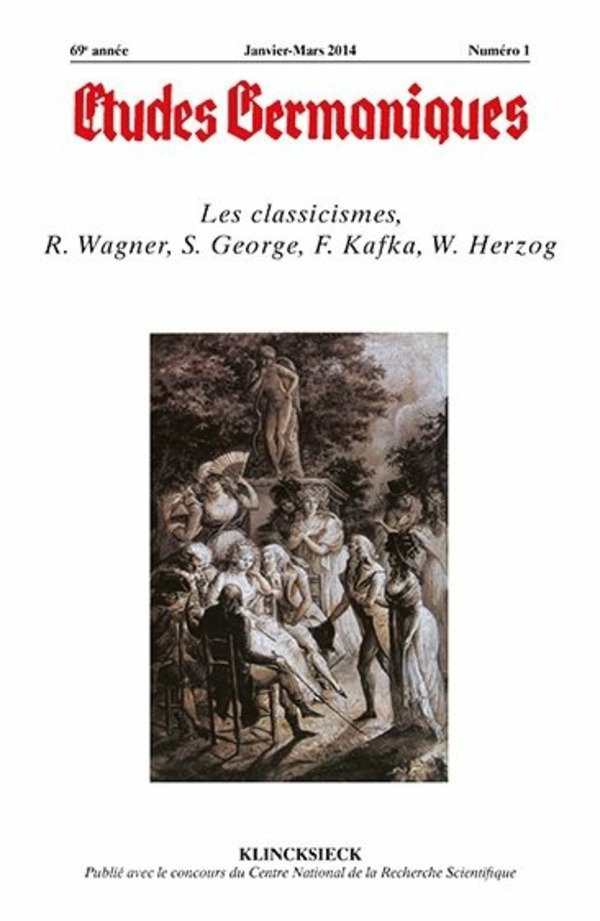
Études germaniques - N°1/2014
Les classicismes, R. Wagner, S. George, F. Kafka, W. Herzog
René Sternke : Klassikentwürfe als Visionen zur Krisenbewältigung In order to for us to understand the motivation behind classical phenomena, three concepts of classicism are analyzed. Frederick II of Prussia proposes the vision of a German classicism in response to the absence of a German language and literature adequate to...
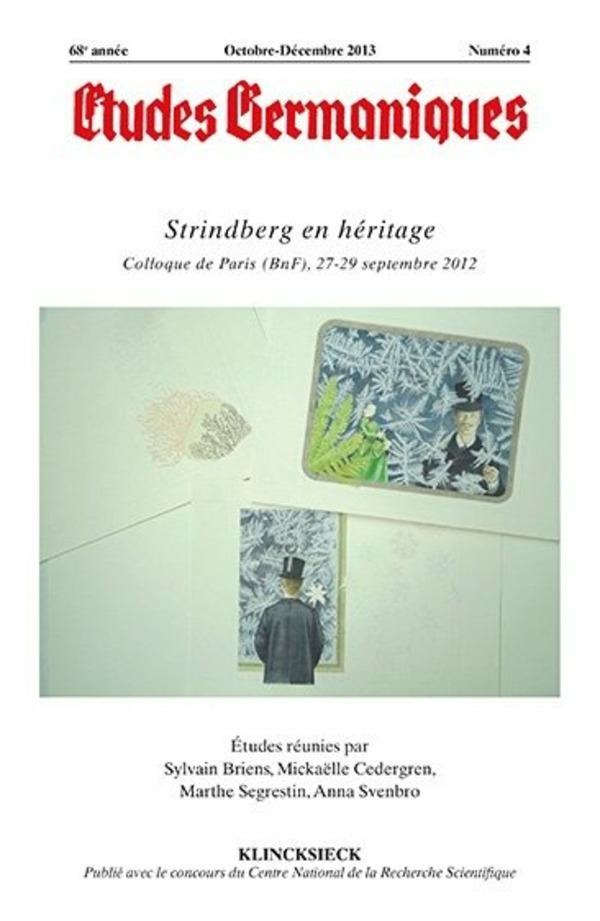
Études germaniques - N°4/2013
Strindberg en héritage (Colloque de Paris BNF, 27-29 septembre 2012)
Gunnel ENGWALLStrindberg, journaliste français During his lifetime, August Strindberg participated not only in the Swedish newspaper debate but also in the French. The first contribution was published in 1883 and the last in 1911, with a concentration to the years 1885-1887 and 1894-1898, e.g. during Strindberg's longer stays in France....
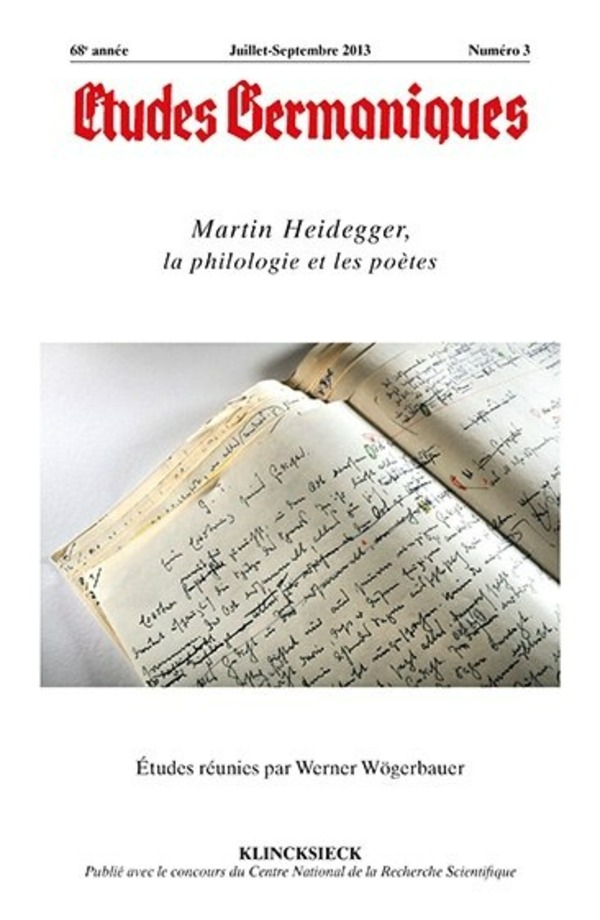
Études germaniques - N°3/2013
Martin Heidegger, la philologie et les poètes
Denis THOUARD : Voir dans les mots. L'herméneutique de la phénoménologie The article examines the development from a Heidegger-inspired phenomenology to an idiosyncratic kind of hermeneutics. It is shown that Heidegger clearly diverges from previous hermeneutics and splits up Dilthey's philosophical project : he radicalizes the analysis of understanding but...
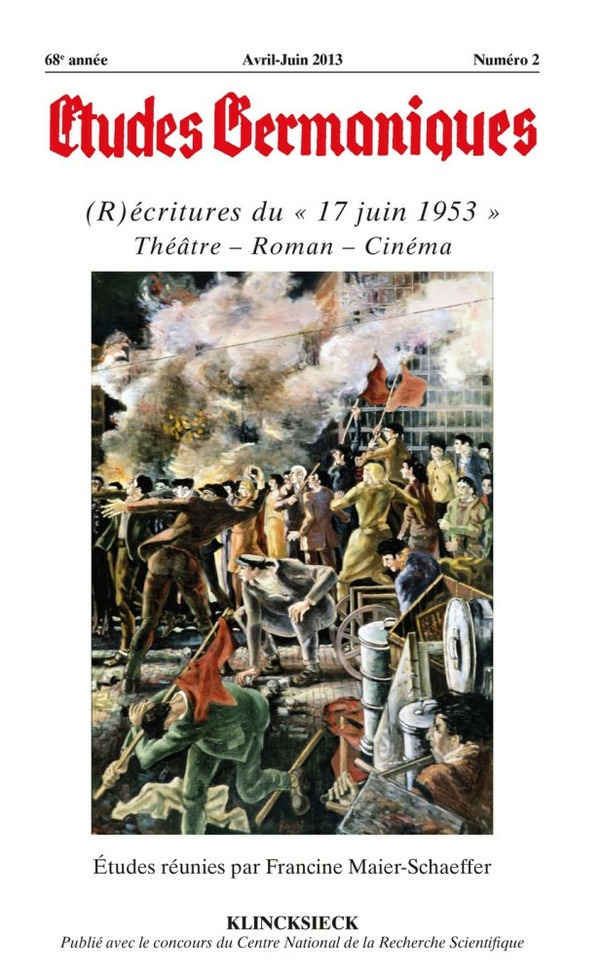
Études germaniques - N°2/2013
(R) écritures du '17 juin 1953", Théâtre - Roman - Cinéma
Richard BLANCHET : Le 17 juin 1953 : stratégies filmiques et enjeux du film Zwei Tage Hoffnung de Peter Keglevic Peter Keglevic's movie Zwei Tage Hoffnung deals with the events of the 17th of June 1953, which are still differently interpreted by historians. His movie was intended to reach the...
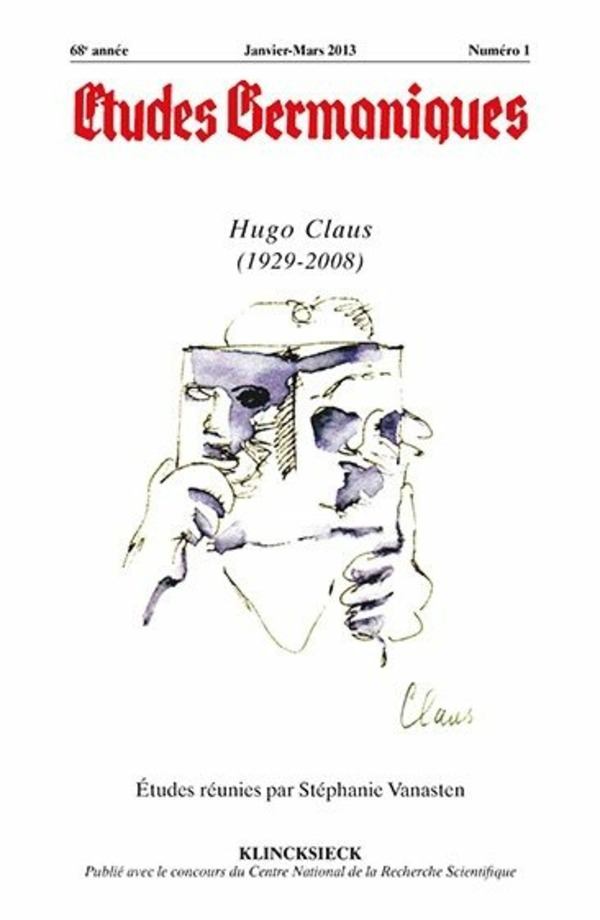
Études germaniques - N°1/2013
Hugo Claus (1929-2008)
Julien VERMEULEN : Hugo Claus à New York (1959) In 1959-1960, Hugo Claus spent six months in the US, Mexico and Cuba. In the course of his trip he wrote down a number of impressions and experiences which he later turned into a cycle of poems, entitled "Reportage" (1961). In...
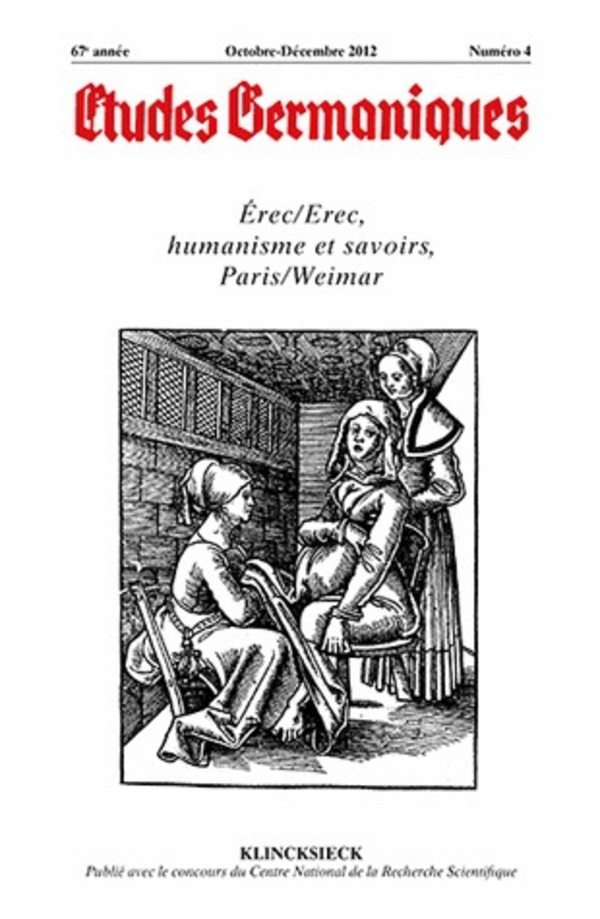
Études germaniques - N°4/2012
Érec/Erec, Humanisme et savoirs, Paris/Weimar
Christophe THIERRY, Puissance et Sagesse dans Erec de Hartmann von Aue et Érec et Énide de Chrétien de Troyes – des références au De gratia de Bernard de Clairvaux ? Did Chretien de Troyes draw his inspiration from the treatise De gratia ...
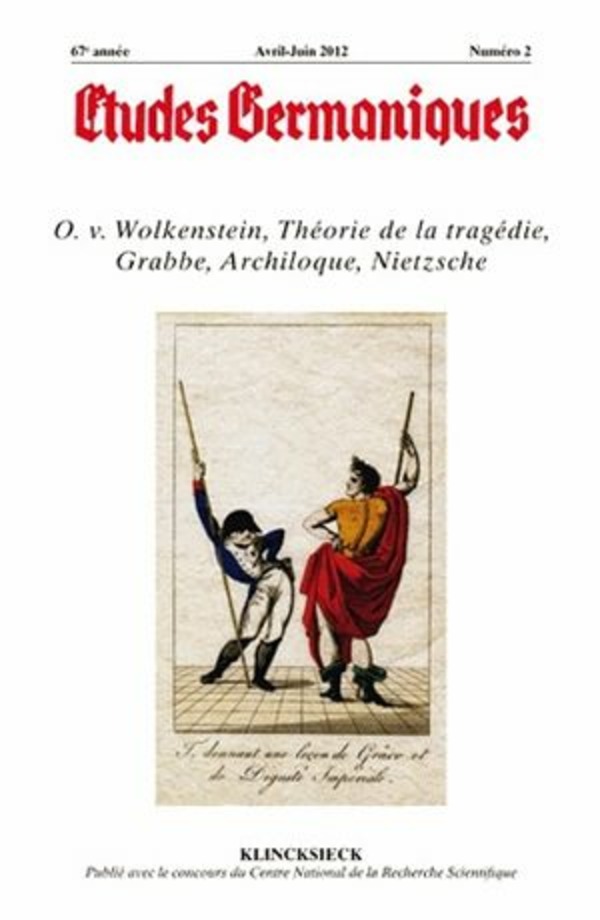
Études germaniques - N°2/2012
O. v. Wolkenstein, Théorie de la tragédie, C. D. Grabbe, Archiloque, F. Nietzsche…
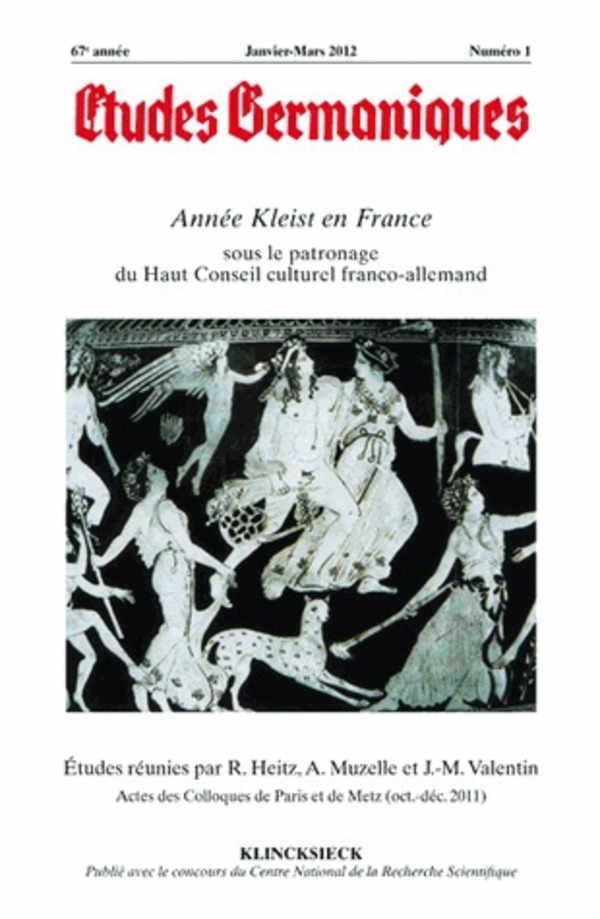
Études germaniques - N°1/2012
Année Kleist en France
Jean-Marie VALENTIN, ὀρειϐασια, σπαραγµός, ὠµοφαγια. Kleist, Penthésilée et le retour du dionysiaque euripidien This article deals in the first place with the philosophical interpretation of the tragic by Schelling and its consequences for the ...

